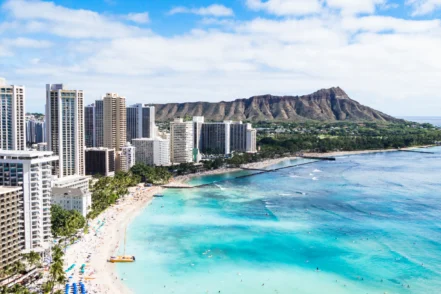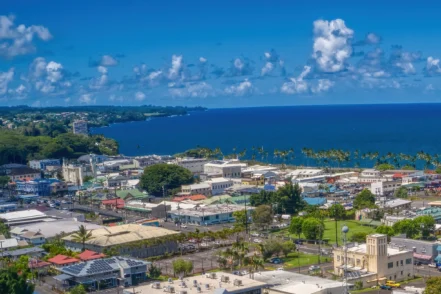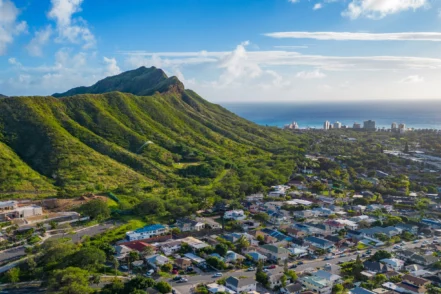About Lokahi Treatment Center Hilo
Lokahi Treatment Center Hilo is a comprehensive treatment center that offers a variety of services to help individuals struggling with addiction. Services include alcohol and drug rehab, young adult rehab, adult programs, men’s and women’s rehab, outpatient rehab, family therapy, group therapy, and individual therapy. Lokahi Treatment Center Hilo is dedicated to helping individuals overcome addiction and regain control of their lives. If you or someone you know is struggling with addiction, please reach out to Lokahi Treatment Center Hilo for help.
Addiction Treatment Programs
Alcohol Rehab
Alcohol rehab in Hawaii can give you the tools and skills you need to reclaim your life and achieve long-term recovery. These treatment programs offer detox, inpatient treatment, and outpatient care. You may receive individual, group, and family counseling, peer support, and classes in essential life skills.
Drug Rehab
If you’re looking to break free of dependence on drugs, a high-quality drug rehab in Hawaii can help. These treatment programs offer detox, inpatient treatment, and outpatient care. You may receive individual, group, and family counseling, peer support, and classes in essential life skills.
Young Adult Rehab
Being a young adult can feel overwhelming. Choose a young adult rehab in Hawaii to get the support you need to overcome addiction and learn new life skills. These treatment programs offer detox, inpatient treatment, and outpatient care tailored to the unique needs and challenges of young adults.
Adult Program
Adults face unique challenges, and an adult program in Hawaii can help them work on building their careers or parenting while overcoming addiction. These treatment programs offer detox, inpatient treatment, and outpatient care tailored to adults’ specific needs and challenges.
Men's Rehab
A men’s rehab in Hawaii addresses the recovery needs of male clients and gives them the tools they need to succeed. These treatment programs offer detox, inpatient treatment, and outpatient care tailored to the unique needs and challenges men face, which may include questions about career, fatherhood, family relationships, emotional vulnerability, and more.
Women's Rehab
Women’s rehabs in Hawaii address a wide range of substance use issues while also helping clients with gender-specific issues. These treatment programs offer detox, inpatient treatment, and outpatient care tailored to the unique needs and challenges of women. They generally also include life skills training tailored to the client’s needs.
Insurance Coverage
Medicaid
For those who qualify for Medicaid, using your coverage to pay for treatment in Hawaii can make rehab more accessible. Medicaid covers multiple levels of care, and you may have no out-of-pocket costs. However, you’ll need to choose a treatment center that accepts Medicaid.
Private insurance
One of the most affordable ways to pay for rehab in Hawaii is to use private insurance. Keep in mind that plans vary, so it’s important to check with your insurer for information about which treatment centers are in-network, how much coverage is available, and what out-of-pocket costs you might be responsible for.
Self-pay options
There are many ways to pay for rehab in Hawaii, including self-pay. You can have money sent electronically to the center, write a check, or use a medical loan. The payment details may vary depending on the level of care.
Sliding scale payment assistance
For those who need help paying for rehab in Hawaii, a program with a sliding scale payment plan can make treatment more accessible. By providing information about your income and family size, you can qualify for a lower fee for detox, inpatient treatment, outpatient care, and more.
Medicare
One option for paying for rehab in Hawaii is using Medicare. Because Medicare plans may vary, be sure to find out what centers accept your coverage and to find out what out-of-pocket costs you might be responsible for.
Military insurance
When looking for ways to pay for rehab in Hawaii, consider military insurance if you’re a service member or veteran. Because plans vary, be sure to contact the insurer to find out what centers are in-network with your coverage and to find out what out-of-pocket costs you might be responsible for.
Levels of Care
- 1
Outpatient Rehab
In Hawaii, outpatient treatment allows you to live independently while getting the care you need to establish long-term recovery. Some of the elements of outpatient treatment include individual and group counseling, skill-building, relapse prevention, and help with essentials like employment and housing.
Therapies
Family Therapy
In Hawaii, family therapy allows you to understand how family relationships and patterns may have impacted your substance use. Everyone learns to have healthier relationships that support their recovery. Family therapy can mean addressing uncomfortable and challenging issues, but having a professional therapist facilitating the sessions makes it easier for everyone to share honestly and improve their relationships.
Group Therapy
In Hawaii, group therapy allows you to hear others’ stories, ask questions, and find others who relate to you. This support and accountability help you establish recovery. Some of the topics covered in group therapy include overcoming shame and guilt, improving communication, developing healthy coping skills, and building a support network.
Individual Therapy
During rehab in Hawaii, individual therapy allows you to receive focused, confidential care for specific issues. Individual therapy sessions generally last 60 minutes and may include discussing a specific issue, education about specific topics, or developing life skills.
Accreditations
Location
Contact Lokahi Treatment Center Hilo
Top Drug Rehab Centers in Hawaii
-
 Hawaii
HawaiiHabilitat Kaneohe
45-035 Kuhonu Place Kaneohe, Hawaii 96744
-
 Hawaii
HawaiiThe Ohana Addiction Treatment Center
75-5915 Walua Road Kailua-Kona, Hawaii 96740
-
 Hawaii
HawaiiThe Exclusive Hawaii Hakalau
31-631 Old Mamalahoa Hwy Hakalau, Hawaii 96710
-
 Hawaii
HawaiiBobby Benson Center
56-660 Kamehameha Highway Kahuku, Hawaii 96731
-
 Hawaii
HawaiiHope Services Hawaii
357 Waianuenue Avenue Hilo, Hawaii 96720
-
 Hawaii
HawaiiHoomau Ke Ola
85-761 Farrington Highway, Suite 101 Waianae, Hawaii 96792
-
 Hawaii
HawaiiKu Aloha Ola Mau Honolulu
1130 North Nimitz Hwy, Suite C-302 Honolulu, Hawaii 96817
-
 Hawaii
HawaiiLokahi Treatment Center Hilo
400 Hualani Street, Building 10-195-B Hilo, Hawaii 96720
-
 Hawaii
HawaiiHawaii Island Recovery
75-170 Hualalai Road, Suite C 311-A Kailua-Kona, Hawaii 96740
-
 Hawaii
HawaiiBig Island Substance Abuse Council 297 Waianuenue Avenue
297 Waianuenue Avenue Hilo, Hawaii 96720
